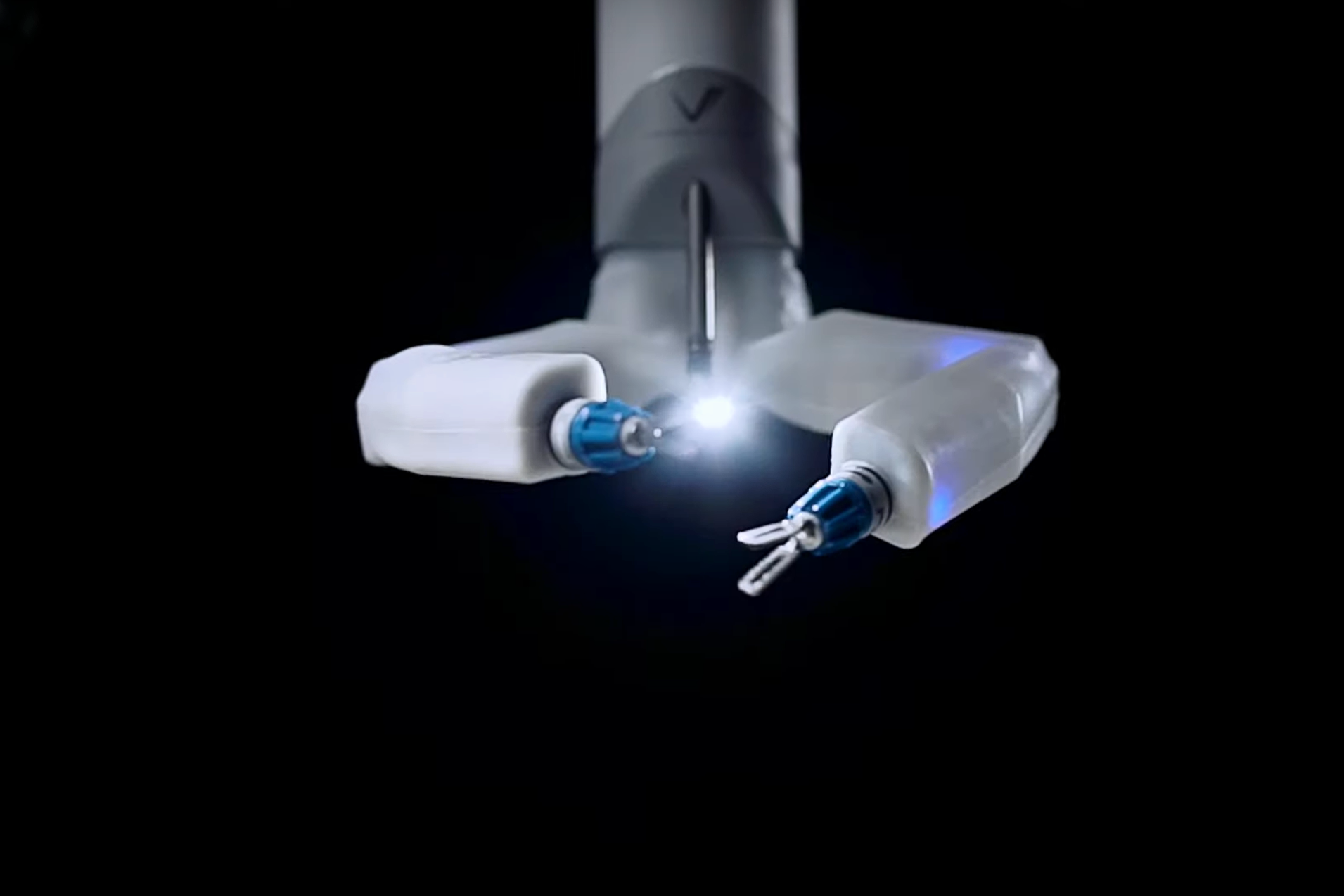First ever robot surgery in space paves way for Mars trips
Nasa astronaut says historic procedure ‘will enable us to go on these longer-duration missions, further from Earth’

Your support helps us to tell the story
From reproductive rights to climate change to Big Tech, The Independent is on the ground when the story is developing. Whether it's investigating the financials of Elon Musk's pro-Trump PAC or producing our latest documentary, 'The A Word', which shines a light on the American women fighting for reproductive rights, we know how important it is to parse out the facts from the messaging.
At such a critical moment in US history, we need reporters on the ground. Your donation allows us to keep sending journalists to speak to both sides of the story.
The Independent is trusted by Americans across the entire political spectrum. And unlike many other quality news outlets, we choose not to lock Americans out of our reporting and analysis with paywalls. We believe quality journalism should be available to everyone, paid for by those who can afford it.
Your support makes all the difference.A team of Earth-based doctors have performed the first ever remote-controlled surgery in space using a robot aboard the International Space Station (ISS).
The successful procedure, which saw surgeons slice through rubber bands as a stand-in for human tissue, could pave the way for a new era of space medicine that facilitates long-distance missions to Mars and beyond.
The spaceMIRA robot, built by engineers at the University of Nebraska-Lincoln in the US, had a signal latency of between two-thirds to three-quarters of a second. This is far greater than similar remote-controlled surgical robots currently used on Earth, however short enough to perform a range of surgeries that would previously have been impossible without a specialist onboard.
“Those surgeries will enable us to go on these longer-duration missions, further from Earth,” said Nasa astronaut Jasmin Moghbeli. “So it’s a real game-changer.”
Virtual Incision, a private company created to develop the robot, said spaceMIRA is currently the only robotic surgery device that is small enough to be suitable for space missions.
Nasa has been researching and investing in the technology for decades in the hope of one day using it on deep space missions. A round-trip to Mars, which is one of the “horizon goals” of the US space agency, is anticipated to take around two years to complete.
“Longer space missions increase the likelihood that crew members may need surgical procedures, whether simple stitches or an emergency appendectomy,” Nasa wrote in a blog post detailing the mission.
“Results from this investigation could support development of robotic systems to perform these procedures.”
Beyond long-duration space missions, Virtual Incision said its robot could be used to perform surgeries in remote places on Earth, offering any operating room the option to have access to specialist surgeons.
“As thrilling as it is to have our technology in space, we expect the impact of this research will be most notable on Earth,” said the company’s chief executive John Murphy.
“The introduction of miniRAS has the potential to revolutionise healthcare by making every operating room robot ready.”
Join our commenting forum
Join thought-provoking conversations, follow other Independent readers and see their replies
Comments